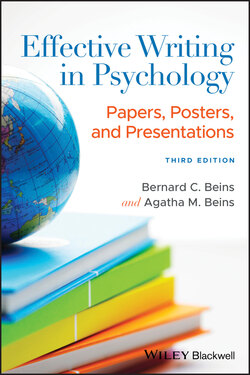Читать книгу Effective Writing in Psychology - Bernard C. Beins - Страница 34
3 AssessingYour Sources
ОглавлениеIn all affairs it's a healthy thing now and then to hang a question mark on the things you have long taken for granted.
Bertrand Arthur William Russell
The most erroneous stories are those we think we know best—and therefore never scrutinize or question.
Stephen Jay Gould
Imagine that you have been diagnosed with an illness and need treatment. How do you find out what treatment is the best for your condition? Would you be more likely to trust a doctor or medical student? How would you assess advice from someone who was diagnosed with and recovered from the same illness? Would you choose a drug regimen based on a television advertisement or an internet pop‐up ad?
Although writing a paper generally is not a matter of health or sickness, there may be some parallels between your decision about treating an illness and using a source in your paper. Consider the following questions: Where does the information come from? Who is telling you the information, and what kind of credibility does the source have? Where would you look to find out more? The purpose of this chapter is to give you some tools for addressing these questions by evaluating the sources you encounter. This process involves determining not only the credibility of the source but also what biases or assumptions shape the information in a credible source. Credibility, therefore, is the central concept of this chapter because it can be a useful yardstick for evaluating sources, for the greater your sources' credibility, the more confident you can be in the information they contain. In an academic paper, credible sources also strengthen your own credibility as a writer.
